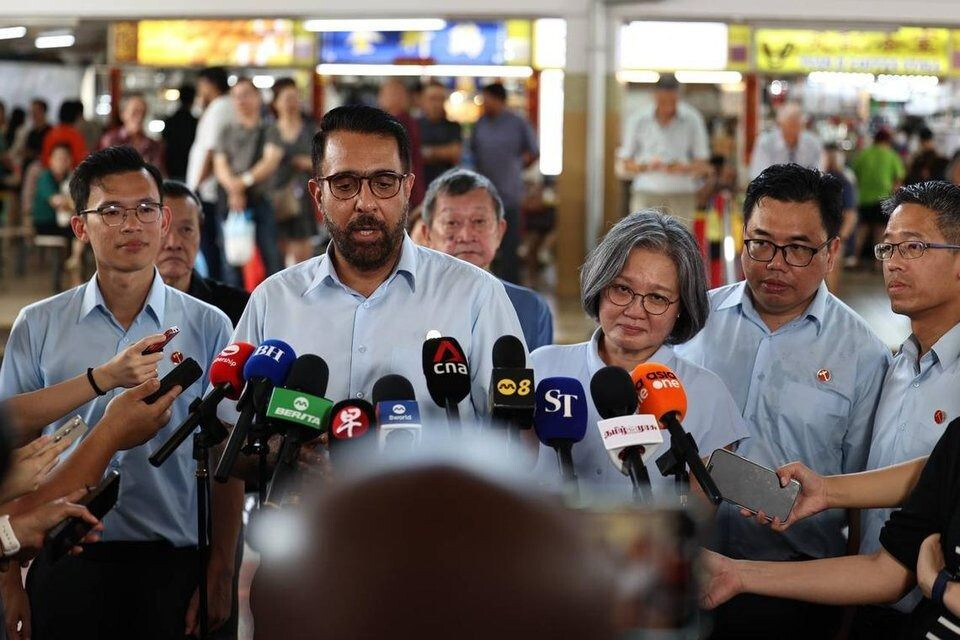
As Singapore approaches its general election, the controversy surrounding foreign interference is intensifying. Masagos Zulkifli, Minister-in-charge of Muslim Affairs, emphasized that "differences should not lead to division," particularly stressing the need to separate religion and politics. This statement came immediately after the government blocked Facebook posts by three foreigners: Malaysian Islamic Party (PAS) politicians and a former Singaporean Internal Security Act (ISA) detainee.
The government determined that these individuals were attempting to improperly interfere in the Singaporean general election and instructed Meta to block their posts. The individuals at the center of the controversy are Iskandar Abdul Samad, PAS treasurer; Mohd Shukri Omar, Selangor PAS Youth chief; and Zulfikar Mohamad Shariff, a former ISA detainee who is now an Australian citizen. Through social media, they criticized local Malay/Muslim Members of Parliament for allegedly not representing the interests of the Singaporean Muslim community and expressed support for specific opposition candidates. In particular, Zulfikar Shariff urged Singaporean Muslims to support an Islamic state based on Sharia law and to reject the current constitution and secular democratic state.
During an election campaign event in the Tampines GRC constituency, Minister Masagos stated, "The harmony that Singapore has built over decades is by no means a given and requires constant effort." He emphasized that multiracialism and mutual respect are the foundations of Singapore's peace, stability, and prosperity, and cautioned against the use of race or religion as political tools. He also criticized foreign forces interfering in the election to sow division as an act that undermines the trust within Singaporean society.
Politicians from the ruling People's Action Party (PAP) unanimously criticized foreign interference and emphasized the independence of Singaporean politics. Zaqy Mohamad, Senior Minister of State, warned that it is very dangerous for parties like PAS to appeal to voters based on religion and race. He stressed the need to avoid a situation like Malaysia, where political parties are divided along religious or ethnic lines, and urged Singaporean citizens to make wise political choices for the sake of a harmonious and peaceful nation. Tan See Leng, Minister for Manpower, also highlighted foreign interference as a worrying trend and emphasized that Singaporean elections should be purely domestic matters.
The opposition parties also clearly stated their opposition to foreign interference. Workers' Party (WP) chief Pritam Singh revealed that a religious teacher, Nur Diyanah Senin, had unexpectedly appeared at a meeting with Malay/Muslim religious leaders, and that they had not made any promises in exchange for her support. Tan Cheng Bock, chairman of the Progress Singapore Party (PSP), emphasized that Singaporean citizens "do not need foreigners to tell us what to do" and warned that foreign interference is dangerous. Chee Soon Juan, leader of the Singapore Democratic Party (SDP), stated that foreigners have no business supporting political candidates in Singapore, adding, "On this, I completely agree with the PAP. Don't interfere," as it is a domestic matter. Reno Fong, president of the National Solidarity Party (NSP), also asserted that Singaporean politics is solely for Singaporean citizens and that foreign interference would not be tolerated.
Religious organizations also expressed concern about foreign interference and reaffirmed the principle of the separation of religion and politics. The Inter-Religious Organisation (IRO), Singapore's oldest interfaith body, issued a statement warning that Singapore's peace is not a given and that dangers arise when religion is intertwined with politics. The National Council of Churches of Singapore and the Singapore Buddhist Federation also reaffirmed their long-standing position that religion and politics should be separate.
This controversy demonstrates how highly Singaporean society values the principle of separating religion and politics. In a multiracial and multi-religious nation like Singapore, religious conflict can lead to social instability. The Singaporean government, political circles, and religious organizations are expected to remain vigilant against foreign interference and work to safeguard the unity and stability of Singaporean society in light of this controversy.
[Copyright (c) Global Economic Times. All Rights Reserved.]






























